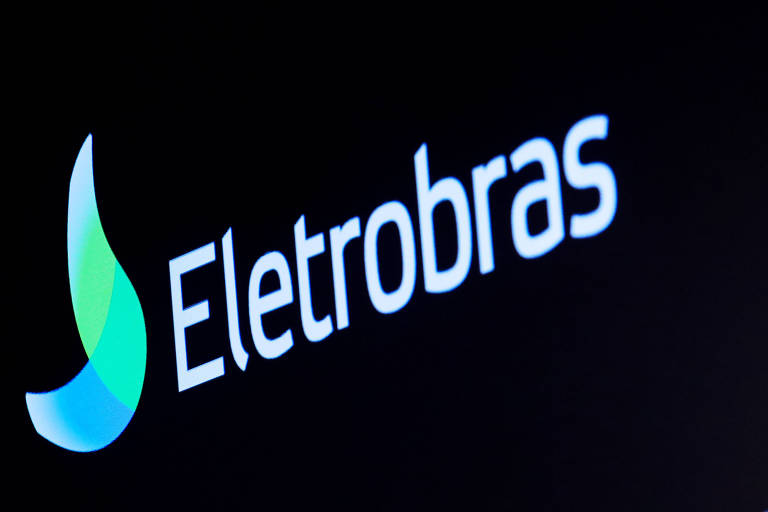After privatization by capital increase, government will hold about 40% of votes
06/10/2022
/i.s3.glbimg.com/v1/AUTH_37554604729d4b2f9f3eb9ad8a691345/internal_photos/bs/2022/m/B/KERvLYTs20IUgxiB9YeQ/10fin-110-subele-c1-img01.jpg)
Investors say changes will help company gain efficiency — Foto: Domingos Peixoto/Agência O Globo
Eletrobras managed to price at R$42 each share in the mega stock offering that will privatize the company. Eletrobras sold 802.1 million shares, raising R$33.7 billion.
According to a Valor Data survey, in dollar terms, the amount represents a little more than twice the volume of Vale’s privatization, and 78% more than Banespa’s privatization. It was the second-largest privatization ever in the country, second only to that of telecoms company Telebras.
With the sale of part of shares held by the Brazilian Development Bank (BNDES) and especially the dilution of the federal government’s stake with the issuance of new shares, the government is no longer the controlling shareholder of Eletrobras — although it holds a golden share. The federal government and the BNDES go to 40.3% from 68.6% of the common shares (there is still a small participation of other government funds, not detailed in the prospectus), going to 36.9% of the total capital.
By early evening, the tug-of-war between banks and investors was concentrated on a R$0.5 difference, with the official range between R$42 and R$42.5. Relevant international investors, such as GIC and CPPIB, had tried to reduce the price (in the morning, the groups were pushing for shares between R$38.5 and R$39.5). With the high interest in the operation, around R$60 billion, the banks managed to raise the price. The Brazilian institutional group includes funds such as SPX and Truxt, already existing shareholders 3G Radar and Banco Clássico, and firms such as RWC and GQG.
Workers who invested using funds from the Workers’ Severance Fund (FGTS) will keep R$6 billion in shares, which was the maximum value for this type of reserve. According to Valor Investe, around 370,000 workers used the FGTS to make reserves for the shares — a demand higher than the 248,000 workers who joined, with the same fund, Petrobras’s offering in 2000, but lower than Vale’s offering, in 2002.
In the privatization process, the company wants to migrate to Novo Mercado — the strictest governance segment of B3. To keep the status of a corporation, the golden share gives the federal government veto power on changes in the bylaws, such as trying to change to 10% the limit of voting power for each shareholder or group. The company also defends the new composition, which prevents the controlling shareholder from creating a poison pill.
Privatization via capital increase also implies the payment of fixed concessions, concerning the renewal of concessions and the adoption of the operation regime — changing from the quota model to the independent production model, in which the plants can sell power at market price.
Although it is different from the classic privatization by auction, with the sale of government participation, the process has the same outcome. “Internally, the structure changes a lot. There is no longer need for a public hiring test, it is no longer under the control of the public spending watchdog TCU, it no longer fits into the law of state-owned companies, it is no longer a semi-public company,” said Vitor Rhein Schirato, founding partner of Daemon Investimentos.
These changes alone can already help the company gain efficiency, in the view of investors. “Historically, privatizations have been accompanied by higher productivity and competitiveness. The companies became more efficient and this in itself should boost competition in the sector, benefiting the consumer,” said Sergio Zanini, a partner at Galapagos.
With different projects and supporters in recent years, the privatization of Eletrobras was fraught with disbelief even after the public offering was filed (you never know when an injunction might come along). At the beginning of last year, Wilson Ferreira Jr. left the command of the company – to which he had agreed to return precisely to conduct the privatization – annoyed with actions in different wings of government to block the process.
Mr. Ferreira Jr., who currently heads Vibra, estimates that Eletrobras will be able to more than triple its investments, becoming a more efficient and competitive company. The management of a state-owned company “is a living hell,” the executive told newspaper O Estado de S. Paulo last week, describing complex and rigid decision-making. The company, on the other hand, will now assume risks that used to be shouldered by the controlling shareholder, such as hydrological risks.
Some people link Eletrobras’s privatization to the beginning of the electoral race – but the fact is that it materialized. “It was one of the government’s promises since the election and, for good or for bad, being able to deliver this offering, at this size, with this demand, is relevant for the government,” Mr. Zanini said.
In the base offer, Eletrobras issued 627.7 million new shares, and BNDES sold 69.8 million shares. An additional allotment added more 104.6 million to the offering.
*Maria Luíza Filgueiras, Manuela Tecchio — São Paulo
Source: Valor International

/i.s3.glbimg.com/v1/AUTH_37554604729d4b2f9f3eb9ad8a691345/internal_photos/bs/2022/E/5/6GFo1qR6uytg2O8hcg0Q/torres-da-eletrobras-custodia-coimbra-agencia-o-globo.png)
/i.s3.glbimg.com/v1/AUTH_37554604729d4b2f9f3eb9ad8a691345/internal_photos/bs/2022/E/d/vix5CBRhue5PBnpG8GZg/18esp-100-eletrobras-a14-img01.jpg)
/i.s3.glbimg.com/v1/AUTH_37554604729d4b2f9f3eb9ad8a691345/internal_photos/bs/2022/8/U/BA3WsSQlAOVAL4WeNnow/27bra-100-eletro-a4-img01.jpg)
/i.s3.glbimg.com/v1/AUTH_37554604729d4b2f9f3eb9ad8a691345/internal_photos/bs/2022/o/G/7EO4vtRH60EmcKHGCbWQ/20bra-100-tcu-a3-img01.jpg)

/i.s3.glbimg.com/v1/AUTH_37554604729d4b2f9f3eb9ad8a691345/internal_photos/bs/2022/N/E/HNKZeuRpqBDHV4Rh9K1g/16bra-100-tcu-a5-img01.jpg)